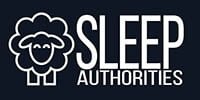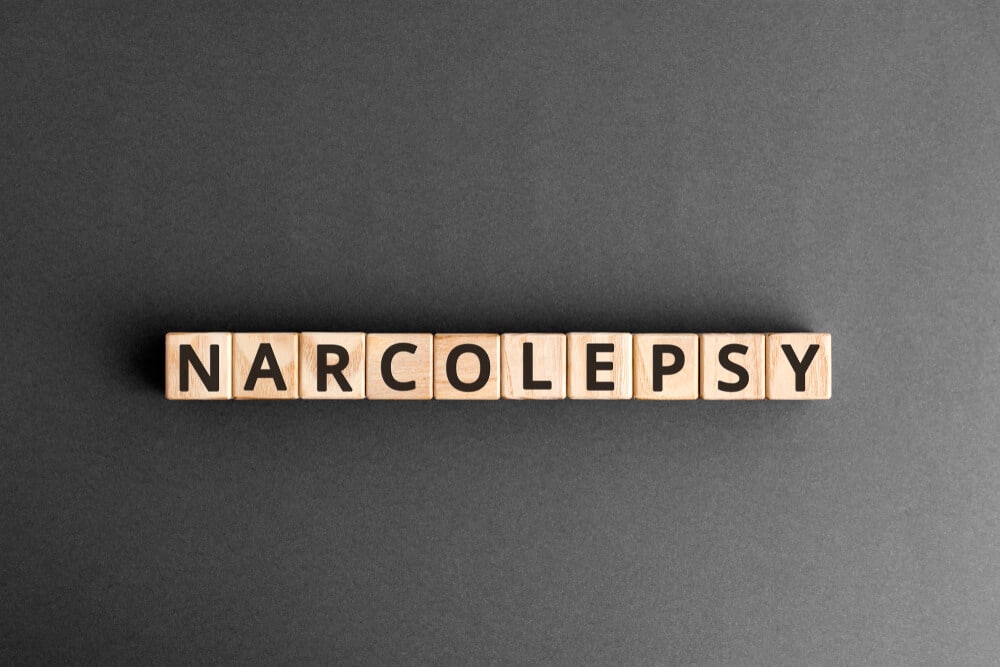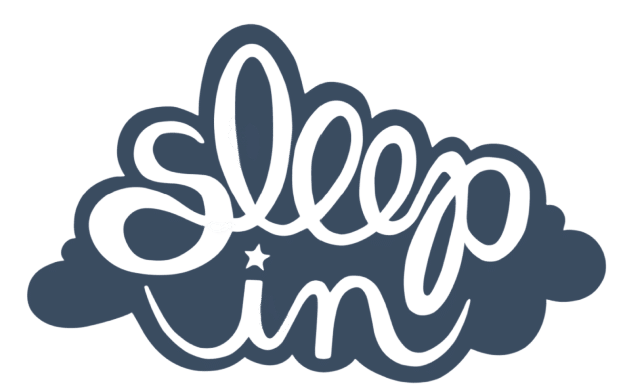- How has the SLEEP IN campaign helped you?
- Is telling people you have narcolepsy a difficult conversation to have?
- What does narcolepsy feel like?
- What are the biggest challenges of living with narcolepsy?
- Has that been a life-long process?
- I can imagine you’re pretty wiped out after a work day.
- What word would you describe living with narcolepsy?
- And it took you 13 years to get diagnosed, correct?
- Could you talk about the process of getting diagnosed?
- What was your initial feeling when you did get the diagnosis?
- What are the most common misconceptions about having narcolepsy, and what would you say about them?
- What’s something you’ve learned that you wouldn’t have without living with narcolepsy?
- Is there anything else you’d like to share?
13 years.
That’s how long it took Henry Nutig to receive a formal diagnosis for his constant, daytime tiredness and inability to ever feel rested or sleep well at night.
Eventually, Henry would discover his symptoms aligned with type 2 narcolepsy, the more common type of the disorder that causes drowsiness during the day and frequent sleep disturbances at night. The National Institutes of Health estimate it affects 200,000 people in the United States, but most cases are undiagnosed or misdiagnosed.
Over the years, Henry has traveled through numerous healing avenues, including Project Sleep, a non-profit that aims to raise awareness and provide resources to those with sleep disorders through annual campaigns, like SLEEP IN.
Project Sleep’s president and CEO, Julie Flygare, who lives with type 1 narcolepsy, drew inspiration from John Lennon’s and Yoko Ono’s bed-ins to co-create SLEEP IN alongside her creative director. The goal? To help people “raise awareness from their beds.” The campaign also raises money to create scholarships for high school students with narcolepsy. Flygare says the upcoming campaign addresses the question, “Could we make peace with sleep?”
Before crossing paths with these resources and communities, though, came a lifelong story of multiple doctor visits, medications and ultimately a sleep test. Here, Henry tells his story of living with narcolepsy.

How has the SLEEP IN campaign helped you?
It helps raise awareness. It’s also a way for my friends and family, who don’t already know that I have narcolepsy, know that I do have it. Aside from awareness, it also gives an opportunity for people with narcolepsy to connect with others.
Is telling people you have narcolepsy a difficult conversation to have?
Sometimes. A lot of people don’t really get it. You know, they just figure you’re tired. Or they see what’s portrayed on TV or in the movies, which is usually incorrect. Some of them don’t understand it. They think it’s just being tired, so when I get to explain the other side effects or symptoms, it definitely makes them more aware of the struggles people have.
What does narcolepsy feel like?
As far as what it feels like, imagine being awake for 48 to 72 hours and then going about your daily routine. Waking up every morning feeling like you really didn’t get good sleep. Not rested. You really wake up as tired as you were when you went to bed.
As far as other symptoms, there’s cataplexy for type 1. But the excessive daytime sleepiness is usually the first symptom that everyone notices. Also, the hallucinations, which could be when you’re falling asleep or waking up, sleep paralysis and disrupted nighttime sleep. People always assume that if you have narcolepsy, you sleep more than anyone else, which actually isn’t true because we do wake up quite a bit during the night. It’s the sleep cycle that’s off, so you’re tired throughout the day and awake throughout the night.
What are the biggest challenges of living with narcolepsy?
The big challenge is being able to go through the day while holding down a full-time job, going home and doing what has to be done in the house, trying to do as much as everyone else has to do without living with this. So it’s a lot of adjusting medications, trying different medications and really being in touch with your doctor and letting them know how you’re reacting to the medications if there’s any changes needed.
People always assume that if you have narcolepsy, you sleep more than anyone else, which actually isn’t true because we do wake up quite a bit during the night.
Also, really being in touch with how you feel. Especially driving. You really have to be aware of how you feel before you get behind the wheel. If it’s gonna be a risk, you can’t drive. But, it’s really paying attention to yourself and knowing your limitations.
Has that been a life-long process?
Yeah, I used to drive up to see my family about three hours away and drive home the same day. But as the symptoms progressed, it was harder and harder to do that to a point where one night coming home I really felt like I shouldn’t be doing this all in one day anymore. My wife ended up driving the rest of the way home. It’s frustrating, you know, not being able to do what you used to do. Now I drive up and stay overnight and drive home the next day.
I can imagine you’re pretty wiped out after a work day.
Right, aside from the fatigue, you’re taking stimulants all day to function and then in the evening you’re coming down from that. So when the stimulants wear off, you’re kind of crashing from that on top of already being tired. It definitely makes it rough.
What word would you describe living with narcolepsy?
I’d definitely go with frustrating.
And it took you 13 years to get diagnosed, correct?
Correct.
Could you talk about the process of getting diagnosed?
My symptoms started probably around the spring of 1996. It was after a really bad bout of strep throat. Several weeks later, I realized that I hadn’t really felt awake. I didn’t feel rested after waking up…And as a couple months went by and no change—I was paying attention to my sleep habits and going to the gym and exercising and doing all the things people tell you to do to feel better—but it was several months, and I still did not feel rested.
So I went to my regular doctor and they did some blood work and checked for everything—vitamin deficiencies, testosterone, thyroid, whatever they could think of—and the test came back normal. And then I went to a different doctor, and it was the same thing: a lot of testing, a lot of blood work, no positive results for anything. And it gets to a point where you hope they find something. You don’t want to hear any bad news, but you want something so at least you know what’s wrong and you’re not imagining it.
The doctors basically just decided that it was depression. That’s why I was tired. I wasn’t depressed; I was tired. Nothing was depressing me, I was in good spirits, but they were convinced it was depression, so they wanted me to see a psychiatrist. They figured that would help. So I tried that, and they gave me antidepressants, increased medication, changed medications, but nothing was helping with the fatigue. And that was my only complaint. I wasn’t depressed, no negative thoughts or anything, I was just always tired…So they kept changing medications, increasing them, and I went to two different psychiatrists and when the last one said that the next step should be shock therapy, I decided I wasn’t going back to him anymore.
You don’t want to hear any bad news, but you want something so at least you know what’s wrong and you’re not imagining it.
It was maybe two or three years later, when I was still struggling with the fatigue, that my wife said, ‘Why don’t you try a sleep study?’ And no one ever mentioned “sleep study” before…I decided a sleep study made sense to me, and you do the overnight with a bunch of wires hooked up to your head, your chest, your arms, your legs to monitor everything through the night. And at first I was diagnosed with mild sleep apnea, which I thought was great, because there was actually a reason for me being tired. So, they gave me a sleep apnea machine, and I was excited because I thought, well here’s an answer. But the sleep apnea machine for several months did not affect my daytime sleepiness.
They did another sleep study, and the doctors thought it was hypersomnia, which is very similar to type 2 narcolepsy. But then he wanted to do a MSLT, a multiple sleep latency test…they didn’t even test the fifth nap. They figured this was a sign that I had it. It was actually January of 2009 that I was officially diagnosed with narcolepsy. So, 13 years.
What was your initial feeling when you did get the diagnosis?
Mixed. You don’t want to hear that you have anything wrong, but when you’re trying for 13 years to find answers, it’s good to actually know that there is an answer.
What are the most common misconceptions about having narcolepsy, and what would you say about them?
A lot of the stigma, or misconceptions, have to do with TV and movies. They’ll show a person with narcolepsy in the middle of a conversation fall asleep into their soup or something. You do get bouts of heavy sleep periods, but you’re not just gonna go fall asleep mid-conversation. The only thing close to that would be cataplexy with heavy emotion if someone laughs they may collapse.
Also, people assume you’re tired or lazy…The thing that annoys me the most, or I guess I laugh at, is when someone says, ‘Oh, you should drink coffee.’
What’s something you’ve learned that you wouldn’t have without living with narcolepsy?
I’m definitely more compassionate than I used to be. Not that I didn’t care about anything before, but it definitely makes you think more. Just knowing what I’m dealing with and what people expect from me or how they look at me if I’m tired, then I have more compassion for other people because you never know what they’re going through.
Don’t assume someone’s lazy or not trying. There’s so many different diseases or conditions out there that we don’t even know about. You never really know what someone’s dealing with. It definitely changed my outlook on other people and the problems they may be facing.
And again with narcolepsy, finding support groups like Project Sleep and a few others that I follow and definitely get support from is definitely a sense of community. Because when you’re struggling with that diagnosis and you’re explaining to everyone how you’re feeling, and no one really gets it, it’s nice to find other people that do get it and understand. It’s definitely a community, and you definitely feel like you’re not alone. I’ve met some of the strongest, most supportive and most inspiring people.
Is there anything else you’d like to share?
There’s a program Project Sleep is doing currently, where they reach out to representatives of Congress with a sign-on letter that gets sent to the Appropriations Committee to prioritize support for critical sleep and circadian disorders, awareness and medical research. I think that’s a big part, to get into medical research and have them look into narcolepsy research and sleep disorders. So many people experience sleep disorders, and so many of them are not diagnosed.
Henry Nutig currently resides in Queens, New York and has communicated with his congressman about narcolepsy. This will be Henry’s fifth year participating in Project Sleep’s SLEEP IN campaign.
To learn more about how you can contribute to SLEEP IN, which runs from March 13-15, visit their event information online.



